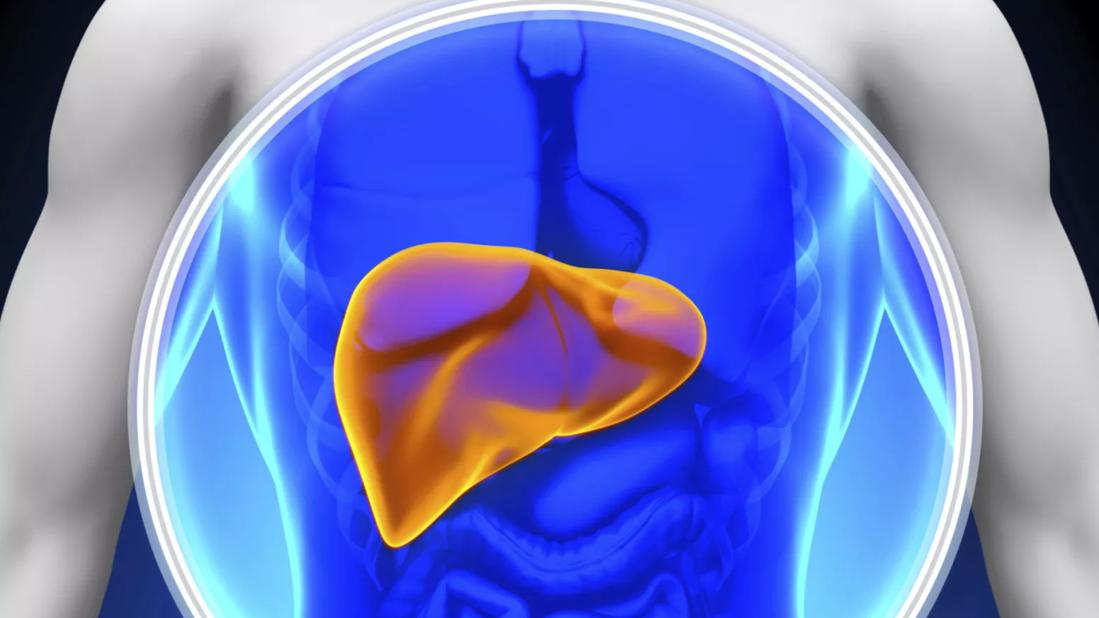IMbrave-150 changes standard of care

A new first-line treatment for the most common type of liver cancer, hepatocellular carcinoma (HCC), has been approved by the Food and Drug Administration (FDA). In May, the FDA approved atezolizumab in combination with bevacizumab for newly diagnosed patients with HCC. This comes after the results of the phase 3 IMbrave-150 study were published in The New England Journal of Medicine, stating that this alternative treatment option led to better survival rates than the previous standard of care, sorafenib.
Advertisement
Cleveland Clinic is a non-profit academic medical center. Advertising on our site helps support our mission. We do not endorse non-Cleveland Clinic products or services. Policy
The multi-center, international, randomized trial included 336 patients who received atezolizumab, an immune checkpoint inhibitor, as an intravenous infusion followed by bevacizumab, an antibody against vascular endothelial growth factor (VEGF), on the same day every three weeks. One hundred and sixty-five patients received sorafenib orally twice daily.
“From a clinical rationale, combining these two inhibitors makes sense. Inhibition of either pathway alone has shown activity in hepatocellular carcinoma,” explains Bassam Estfan, MD, gastrointestinal oncologist at Cleveland Clinic. “Attacking both pathways at the same time has shown improved responses and life expectancy rates.”
The tyrosine kinase inhibitor (TKI) sorafenbi has been the standard of care for the past 13 years. Until now, investigative research hasn’t proven other forms of medication and treatment to be as effective.
Primary analysis showed there was a 42% reduction in the risk of death with the combination treatment compared with sorafenib (HR 0.58, 95% CI 0.42 to 0.79; P < 0.001). Overall survival at 12 months with atezolizumab plus bevacizumab was 67.2% (95% CI, 61.3 to 73.1) and 54.6% with sorafenib (95% CI, 45.2 to 64.0). Median progression-free survival (PFS) was 6.8 months for patients taking the experimental treatment (95% CI, 5.7 to 8.3), and 4.3 months for patients in the standard care treatment plan (95% CI, 4.0 to 5.6). At six months, PFS was 54.5% in the atezolizumab plus bevacizumab group compared with 37.2% for sorafenib.
Advertisement
“This research paves the way for collaborative teams to study potential targets beyond immunotherapy and vascular pathway inhibition,” says Dr. Estfan. “We can navigate the future using pre-approved medications and combine treatments with similar pathways. This is the first time a combination of any therapy regime has shown superiority over sorafenib for better survival outcomes in over a decade. That’s incredibly promising.”
According to the study, patients receiving the atezolizumab and bevacizumab combination reported a better quality of life than those receiving sorafenib. Adverse events were infrequent with combination therapy, with the exception of Grade 3 or 4 hypertension, which occurred in 15.2% of patients.
Cleveland Clinic’s Liver Tumor Clinic provides leading-edge management and treatment of complex liver malignancies. Patients have access to a multidisciplinary team of specialists — hepatobiliary and transplant surgeons, hepatologists, oncologists, radiation oncologists, interventional radiologists and specialized nurse coordinators — in a one-stop clinic, eliminating multiple appointments with different physicians at various locations.
“Having such a resource at our disposal is an extremely valuable tool for optimal care for the increasingly complex and challenging cases we see,” Dr. Estfan says. “Shared clinic visits allow the team to discuss care as viewed from different vantage points. The cumulative multispecialty expertise allows piecing together different aspects of treatment and management to form a comprehensive care plan that is unique to every patient.”
Advertisement
The newly approved combination therapy is one of many offered to patients in the clinic. Refer a patient by calling 855.REFER.123.
Advertisement
Advertisement

Early results show strong clinical benefit rates

The shifting role of cell therapy and steroids in the relapsed/refractory setting

Radiation therapy helped shrink hand nodules and improve functionality

Standard of care is linked to better outcomes, but disease recurrence and other risk factors often drive alternative approaches

Phase 1 study demonstrates immune response in three quarters of patients with triple-negative breast cancer

Multidisciplinary teams bring pathological and clinical expertise

Genetic variants exist irrespective of family history or other contributing factors

Study shows significantly reduced risk of mortality and disease complications in patients receiving GLP-1 agonists